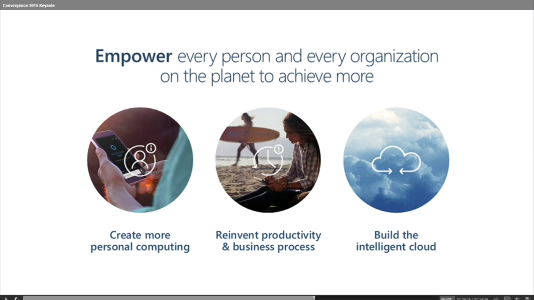There's really nothing complicated about this if you've seen the MWC demo of Cortana bridging PC/tablet/phones.
The main draw of Cortana in the future is her notebook ability and being able to sync that across different devices - Android has been able to do this via Chrome across multiple platforms, iOS had very deep integration with OSX. MS has? Nothing.... You can't sync bookmarks, browser tabs, or even drop a map link using any of MS' current service offerings and have it easily be brought up on the other phones, while MS' competitors can do these and people are impressed by the convenience Google/Apple offers and thinks they are the second coming of IT Jesus, and MS is kept being attacked by the media as being outdated whereas his competitors can do all these neat party tricks. MS is stuck in this position where they can't bring IE on other platforms (besides the technical inability to bring Trident over, there's also the psychology barrier as people probably won't want to use it due to IE's horrible stigma) so the Chrome method is no go, and Windows doesn't deep integrate with iOS and Android no matter what MS does. If MS holds out with WP they'll loose desktop as people move to OSX (proven, as Mac sales are going up due to the halo effect of iOS), or Chromebooks and/or Android convertibles and ditches desktop Windows forever. This play to bring Cortana to Android and iOS is for the good of the entire MS ecosystem - including W10 desktop and tablets (as Cortana is standard there, and again as shown in the MWC demo, her notebook is the key in syncing your life across the devices). The move makes complete sense, nay, is necessary in the survival of the entire Windows ecosystem. If MS doesn't integrate Android/iOS with their other screens somehow, they become completely irrelevant in the consumer space, and later enterprise as well as IT has a history of being driven by consumer tech reverse-imported back into enterprise. So it's essential they do this.


